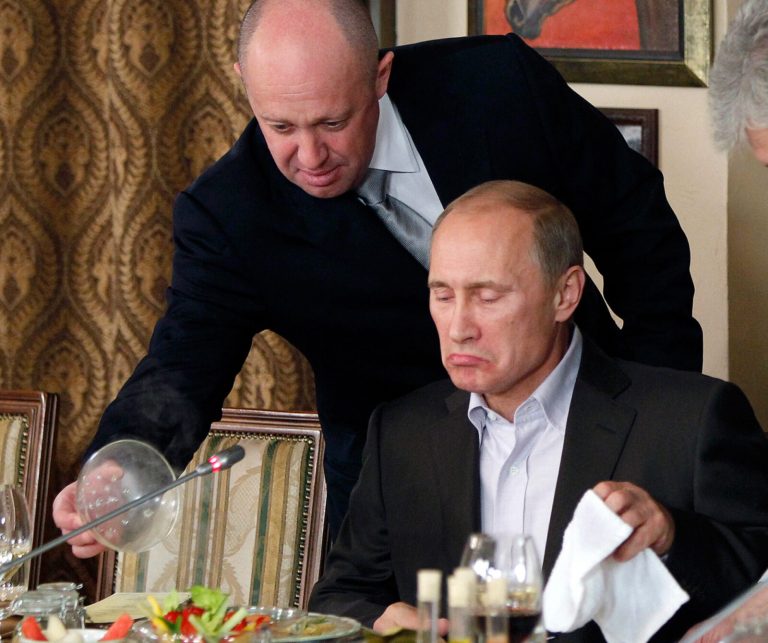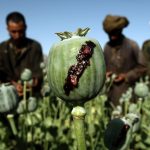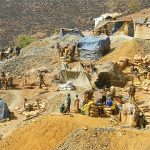Using private military companies and state-owned banks, the critical economic situation in the country and the destabilization in the north of the country caused by the rebellion of the Islamic group, the Russian Federation is attempting to reinforce its positions in Mozambique, Africa.
After the end of the civil war and the onset of a relative political stability period in Mozambique, an active study of local mineral resources began in the country. The global players, including such corporations as ExxonMobil and Anadarco (USA), Artumas (Canada), Eni (Italy), NorskHydro (Norway) and Petronas (Malaysia) started investing billions of dollars in geological exploration in Mozambique. In addition to coal, large reserves of natural gas (5.1 trillion cubic meters, 12th rank worldwide), the world’s largest graphite deposits (115 million tons) used for lithium-ion electric car batteries production were discovered in the Mozambique subsoil. Moreover, placers of the world’s largest pink sapphires and rubies (40% of the world reserves) were found here.
Mozambique remains one of the poorest countries in the world – 49 to 54% of its citizens live in extreme poverty and starve constantly. The youth unemployment rate reaches 40%, GDP per capita is $472. All these circumstances helped the process of local citizens’ recruiting in the network of international terrorist structures.
Mozambique’s top leaders consider the exploration works as the way to emerge from the state economic crisis. However, the government lacks its own financial resources (up to $2 billion) for share participation in the development projects, especially natural gas fields. Secondly, in the northern province of Cabo Delgado where these hydrocarbon natural resources were discovered in 2012-2014, the Islamic rebellion, led by the radical group Ansaral al-Sunna, is intensifying. This jihadist structure maintains ties with the militants of the Islamic State. The militants have connections in Tanzania, Somalia and the Democratic Republic of Congo, have sources of external funding and use the poverty of Mozambican young Muslims actively to draw them into their ranks. The rebellious province is native to President Nyusii and his Makonde ethnic group.
Taking into account the country’s current problems and relying on ties with the ruling party FRELIMO, funded and given military support by the USSR, Russia is attempting to play seriously on Mozambique’s issue. The state of technical default with an external debt of $1.2 billion makes the credit financial resources raise quite problematic. However, during the visit of the President of Mozambique, Filipe Nyusi, to Russia in August 2019, the Kremlin wrote off 95% of the debt owed to Russia. Moreover, after meeting with Vladimir Putin, Rosneft signed a memorandum of cooperation with Empresa Nacional Hidrocarbonetos De Mocambique (ENH) to develop new offshore gas fields. Prior to this, Rosneft has already participated in exploration projects in the Mozambique subsoil. As part of the consortium, it operates on three shelf units, A5-B, Z5-C and Z5-D. ‘Gazprom’ company has its own investments in the country.
At the same time, Russian fighters from ‘The Wagner Group’ (PMC Wagner) came to the province of Cabo Delgado, and ‘Lobaye Investment’ company owned by Russian businessman Yevgeny Prigogine showed its presence as well.
Although the Russian government officially denies the presence of the Russian military in Mozambique, on October 2, the British publication ‘The Times’ reported that in September 2019, Russian transport aircraft landed in two cities of the country, Mueda and Nacala. The total number of fighters arrived from the Russian Federation amounted to 200 military personnel; military equipment, including attack helicopters and UAVs, were also delivered. Thus, after stationing in the area of the future gas hub of Palma, the Russians snatched contracts from other much stronger foreign PMCs such as OAM (John Gartner) and Black Hawk (Dolph Dorling). The services of the Wagnerites, which pledged to take part in the suppression of the Islamic rebellion in Cabo Delgada, cost 5 times less than the services of competitors. At the same time, the Russian fighters are not qualified enough, they have neither connections at the highest level nor skills in conducting ‘the bush war’.
As a result, just at the very first stage of the operation against the Ansar al-Sunnah militants, the Wagner fighters suffered serious losses. On October 27, Islamists attacked a car transporting the mercenaries and the Mozambique military. The attack resulted in 5 Wagnerites and 20 Mozambique military men killed and beheaded, and their car burned. The cut off heads prove the fact of murder for which the Ansar al-Sunna fighters receive $70 each. The Russian Embassy in Maputo stated that it had no information about the deaths of Russian citizens and was ‘surprised’ by such reports. The Mozambique military has denied the death of 5 Wagnerites by indicating that a fake about their deaths was launched by the opposition party RENAMO. However, on November 19, ‘The Moscow Times’ citing Yevgeny Shabaev, the leader of Khovrino Cossack Society, affiliated with PMC Wagner, reported that part of the bodies of the dead in Mozambique had been delivered to the Vladimir region. Their families received impressive financial recompense for non-disclosure.
The described incident demonstrates the low efficiency of PMC Wagner in Mozambique. This means that the expansion of this fighter structure in the country can be stopped and the Mozambique government will be forced to resort to the services of more qualified PMCs. It will also affect the reputation of Prigogine’s affiliates in other African countries.
An additional negative factor for Russia’s positions in Mozambique is the financial scandal were the recently re-elected Mozambican leader, Filipe Nyusi turned out to be embroiled into. The opposition party RENAMO demands his resignation and accuses him of getting personal profit in $2 billion of state loans given to the country to purchase ships, including for conducting tuna fishing by Ematum company. At that time, he took the position of the Minister of Defense and the funds received in the form of loans from Credit Suisse and the Russian VTB bank were hidden in the government’s public reporting until 2016. Due to the exchange of Ematum’s bonds for sovereign bonds of Mozambique it became known that officials and bankers had compensated defalcated funds by Mozambique taxpayers’ expense. At the same time, part of the resources were spent on financing the 2014 election campaign resulted in Nyusi’s victory and elected him as the president. Currently, US intelligence agencies are investigating this case. According to reports, $200 million or 10% of the loan money used as bribes to Mozambican officials. The Russian VTB bank involved in these schemes received a substantial commission in debt bonds transactons. VTB is suspected of corrupt local officials, its leadership may be prosecuted for participating in fraudulent activities.On November 19, 2019, VTB bank filed a complaint to the Mozambican side with proposals to begin debt restructuring of $535 million threatening default. Obviously this very step is a blackmail of the Mozambique government and attempt to influence the investigation of financial frauds and corruption schemes with VTB bank involved.






